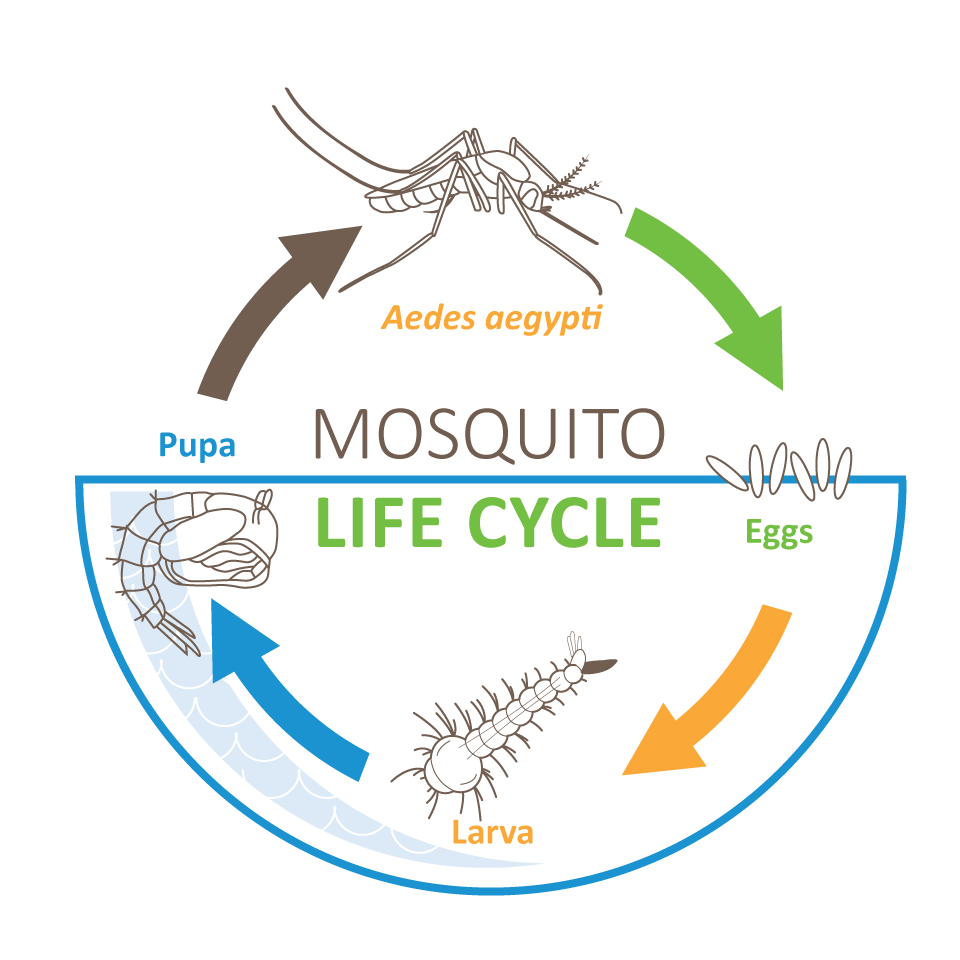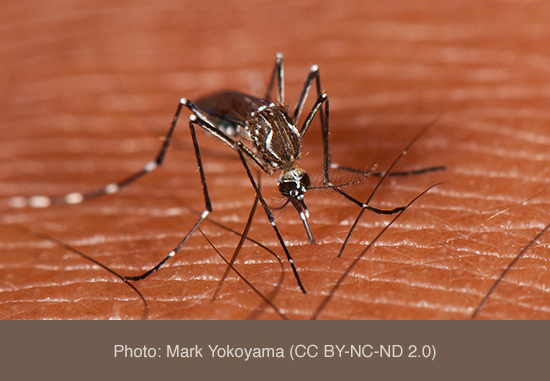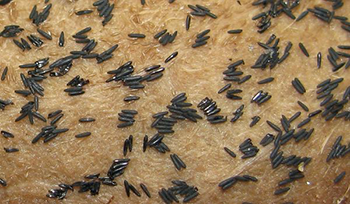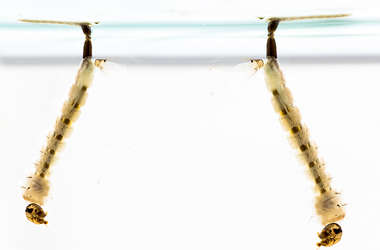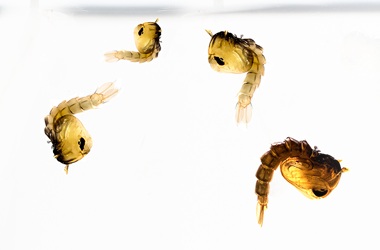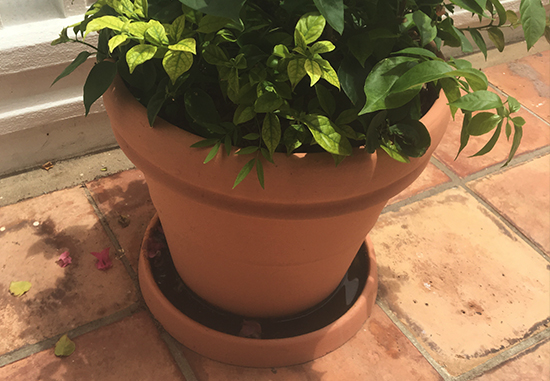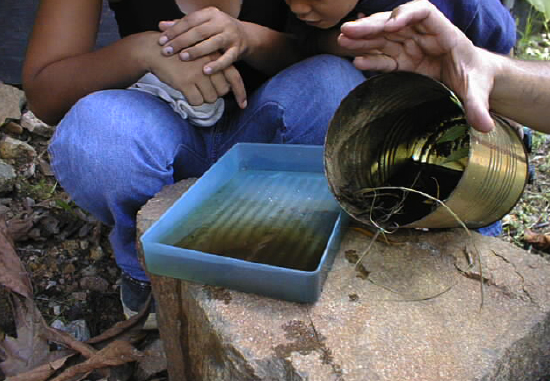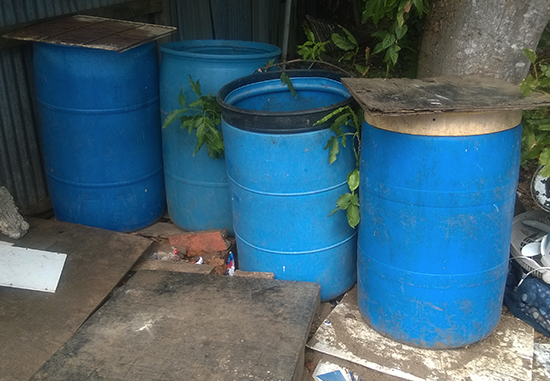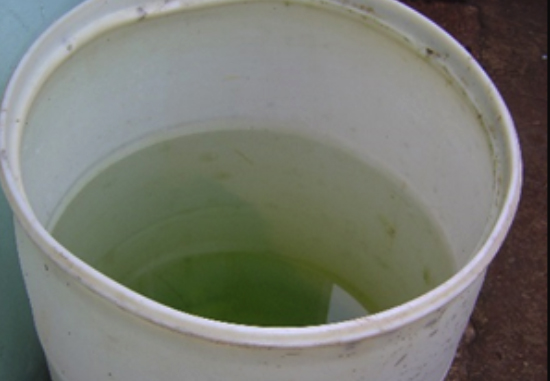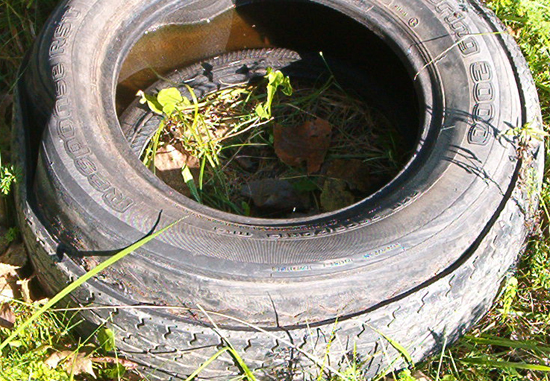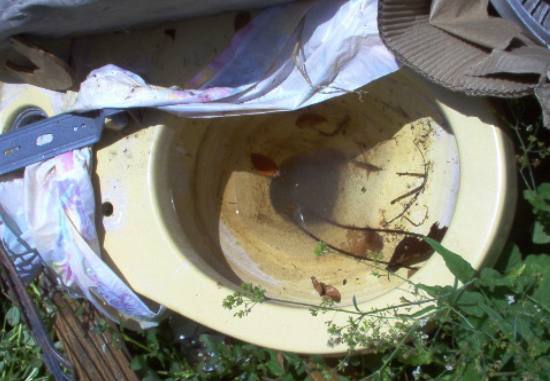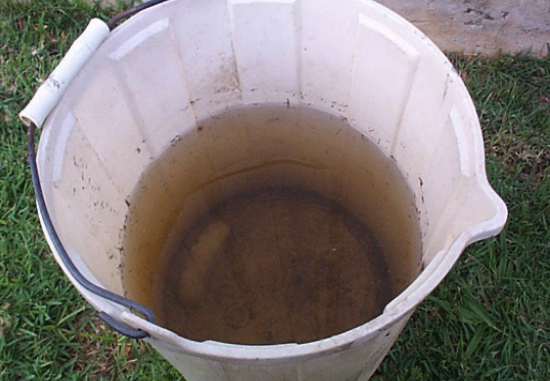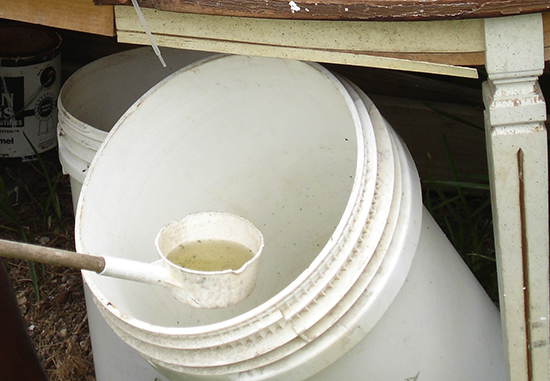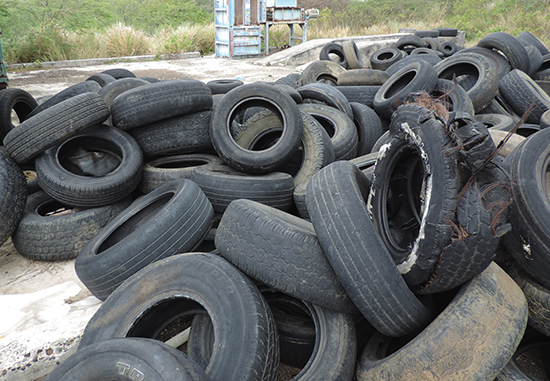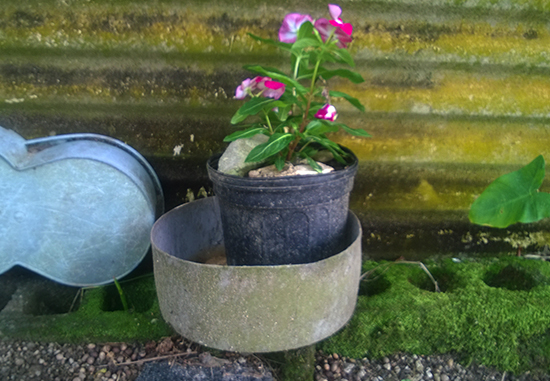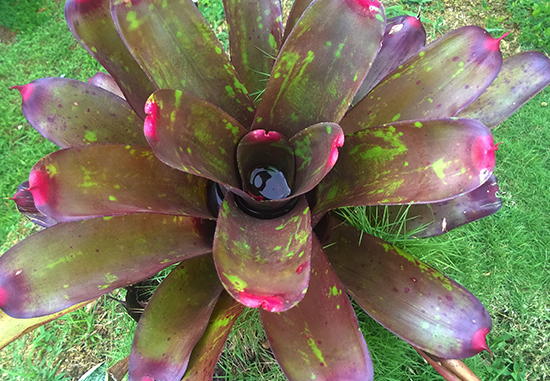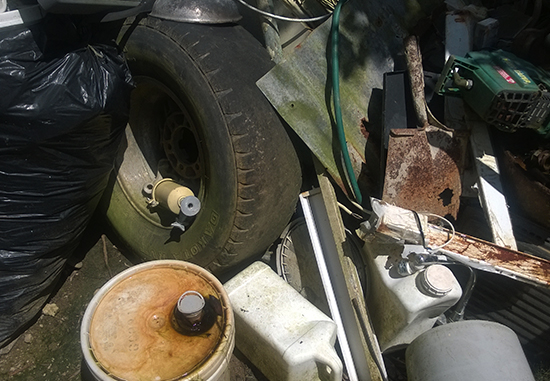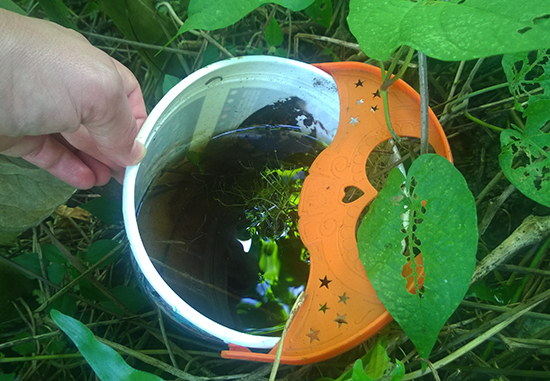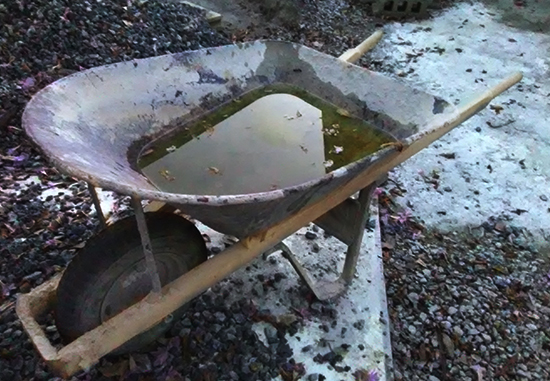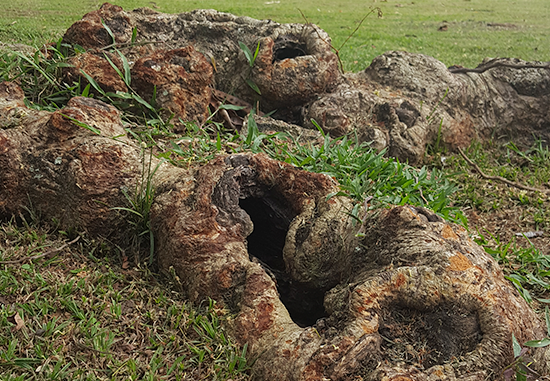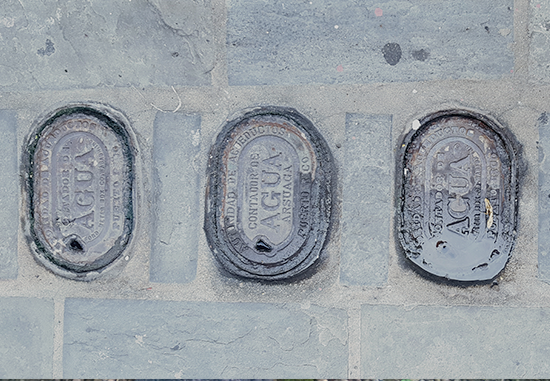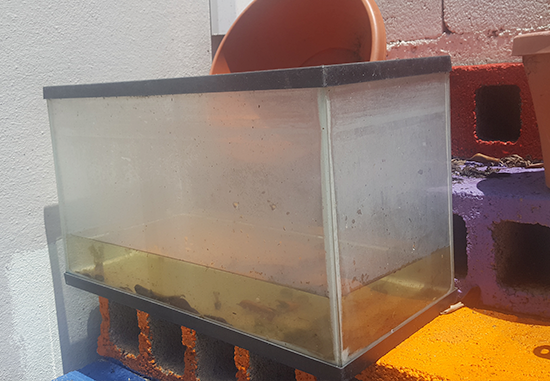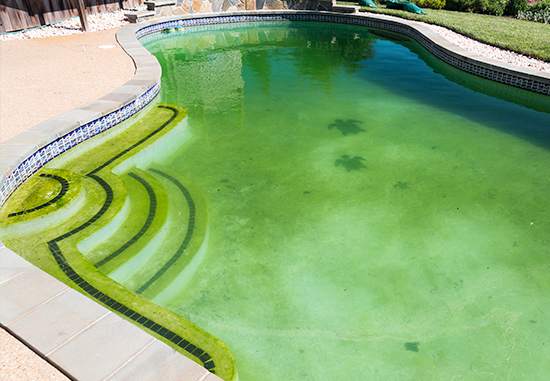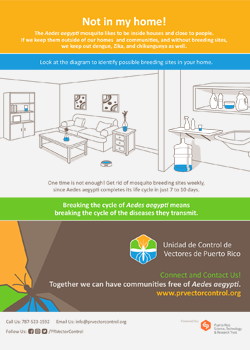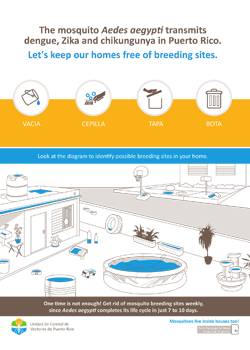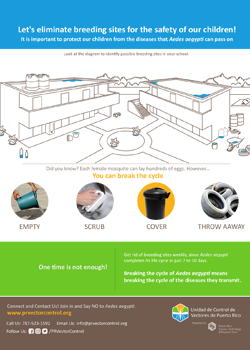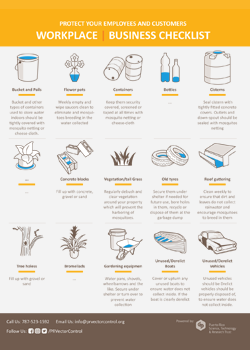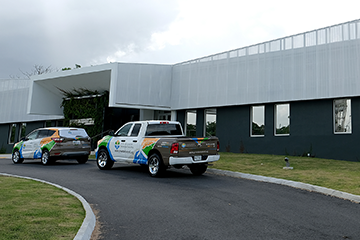LEARN & PROTECT
What is a Vector?
A vector is a living thing that can transmit a disease.
The Aedes aegypti mosquito is the main vector for dengue, chikungunya y Zika.
LEARN THE CYCLE AND BREAK IT!
Adult female mosquitoes feed on human blood to produce their eggs.
Eggs are laid on the edge of containers with accumulated water just above the water line. Eggs hatch when flooded by water. After 3 days, larvae can be seen swimming in the water.
Larvae are aquatic and develop into pupae in as little as 5 days.
Pupae develop into flying adult mosquitoes in 1-2 days.
The mosquito life cycle can take as little as 7 days!
Let’s break the cycle!
We can all play a direct role in dramatically reducing the presence of this mosquito in and around our homes and across our Island.
Eliminate all accumulated water:
Empty
Brush
Cover
Throw Away
Aedes aegypti mosquitoes breed around our homes, making it our responsibility to reduce mosquito breeding sites where we live first.
Protect yourself, your family and friends!
Personal protection is a major part of reducing the spread of vector-borne diseases.
You can protect yourself and those around you.
Use repellents with active ingredients approved by the EPA: DEET, Picaridin, IR3535, Oil of lemon eucalyptus, 2-undercanone.
Wear long sleeved shirts, long pants, and closed-toe shoes when outdoors.
Install bed nets on cribs, strollers, and infant car seats.
Install screens on your doors and windows.
Get to know Aedes aegypti
Aedes aegypti is an urban mosquito. It likes to be inside houses and around people.
Containers filled with water are key in the mosquito life cycle.
Aedes aegypti bite mostly during the day. However, they can also bite at night, especially under artificial lighting.
Female mosquitoes are the only ones that bite, since they need blood to produce eggs.
Eggs can survive many months without water as they are resistant to drying.
Have you seen it?
Curved white mark on thorax
Have you seen it?
Curved white mark on thorax
Have you seen it?
Curved white mark on thorax
